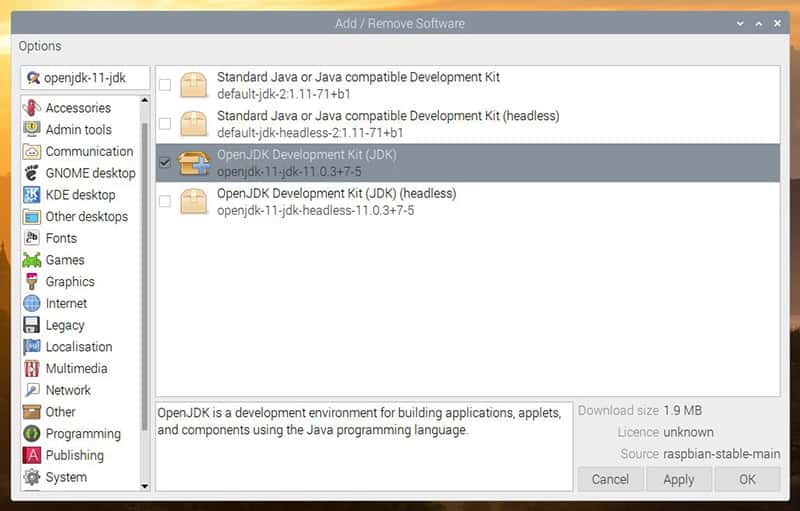

It is recommended to restart the whole machine to make sure that all services come back automatically as expected. You can change logging and log rotation settings in /etc/nzyme/log4j2-debian.xml. If they indicate any issues, look at the nzyme log file to Make sure that all probes are showing as running. (remember, the SHA256 hash?) Your username is admin.
#INSTALL OPENJDK 11 RASPBERRY PI PASSWORD#
Settings and log in with the password you configured. You should now be able to open the nzyme web interface at the address you configured in the interfaces.* Run journalctl -xe to find out what happened. If that log fileĭoes not exist, there is an issue with starting nzyme. You can check the nzyme log file with tail -n 200 /var/log/nzyme/nzyme.log. If the status command does not show nzyme as running ( Active: active (running)), there is an issue with theĬonfiguration.
#INSTALL OPENJDK 11 RASPBERRY PI INSTALL#
Install the UniFi Controller.We have a few options now, we can just manually download the UniFi controller and install it or we could automate the whole process with package manager and in that way, every time you run apt update, the UniFi controller updates as well. This will configure nzyme to start automatically when the system boots:

Wish, as long as it supports that channel. An adapter can scan as many channels as you Setting to make sure that each channel is only scanned by one adapter. This is where you list all WiFi adapters you want to use to scan the environment. Please follow the comments in theĬonfiguration file or read more in the configuration reference 802_11_monitors.* # Here we configure where our web interface and REST APIs are listening. Change it to Python 3.7, which is installed by default: path: /usr/bin/python3.7 interfaces.* # The default configuration file points to a Python 3.8 installation, which your Raspberry Pi will most likely not This is the connection string that nzyme uses to connect to the PostgreSQL database you created earlier.


 0 kommentar(er)
0 kommentar(er)
